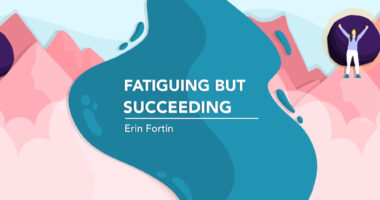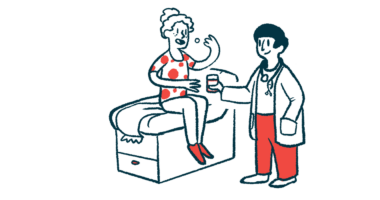Embracing opportunities when my PNH symptoms hold me back
What I've learned from those moments when I don't quite have breath to sing

When I drive, the car is like a sold-out concert at Madison Square Garden in New York City. I love singing with a deep-rooted passion along with songs that either have meaningful lyrics or just a sound that somehow resonates with me. I have a wide range of musical tastes on my driving list, including songs that make me dance, like those on the Feel Good Oldies playlist on Spotify, or those that make me face my emotions head-on, like when Adele hits those high notes.
The experience is therapeutic, stress-relieving, and just plain fun; it even makes me look forward to driving by myself. I don’t mind the travel time to get to doctor appointments for my rare disease, paroxysmal nocturnal hemoglobinuria (PNH), because it allows me to sing without anyone hearing me — except sometimes for my poor toddler daughter in the back seat, most likely laughing at my voice.
But taking deep breaths and letting out all my air through song becomes difficult on days when I have shortness of breath because of my PNH symptoms. I feel this overwhelming disappointment when I’m trying to keep up with the song’s lyrics, but have to gasp for air and stop.
I’m laughing as I think about what I’m feeling during those moments, because my daughter has been obsessed with the scene in the movie “Trolls” where they describe the need to sing, and that’s exactly how I feel. I need to sing. As the character Poppy says in the movie, “Singing helps me relax. Maybe you ought to try it.”
But it doesn’t help me relax when I can’t breathe.
One problem leads to many solutions
My singing issues reflect what it’s like to live with PNH. Just because I want to do something, that doesn’t mean I’ll always be physically able, and I struggle at times to accept that. I push myself and ignore my symptoms out of pure stubbornness, but if I stop and listen to my body, then I can see if I can still accomplish something I want to do — maybe in a different way that isn’t physically harmful.
In the case of singing, if I can’t catch my breath enough to join the artist, then I need to stop fighting it; otherwise, my breathing becomes more and more difficult. Instead, I use that time to be silent and listen intently to the lyrics or the melody, which gives me a different perspective on the song.
I try to carry that thought process when my other symptoms act up. If I have fatigue and I’m forced to sit, it’s an opportunity to pick up a book that I claim I never have time to read. Or if a headache causes trouble focusing, then it’s an opportunity to close my eyes and snuggle with my cats. I shift the disappointment of the original plan to an opportunity that I didn’t originally see.
That doesn’t mean I don’t still get frustrated; believe me, I do. But I find the frustration of changing plans easier to cope with than the frustration of fighting my symptoms and coming up short on whatever I’m doing. Including singing.
Note: PNH News is strictly a news and information website about the disease. It does not provide medical advice, diagnosis, or treatment. This content is not intended to be a substitute for professional medical advice, diagnosis, or treatment. Always seek the advice of your physician or other qualified health provider with any questions you may have regarding a medical condition. Never disregard professional medical advice or delay in seeking it because of something you have read on this website. The opinions expressed in this column are not those of PNH News or its parent company, Bionews, and are intended to spark discussion about issues pertaining to paroxysmal nocturnal hemoglobinuria.




